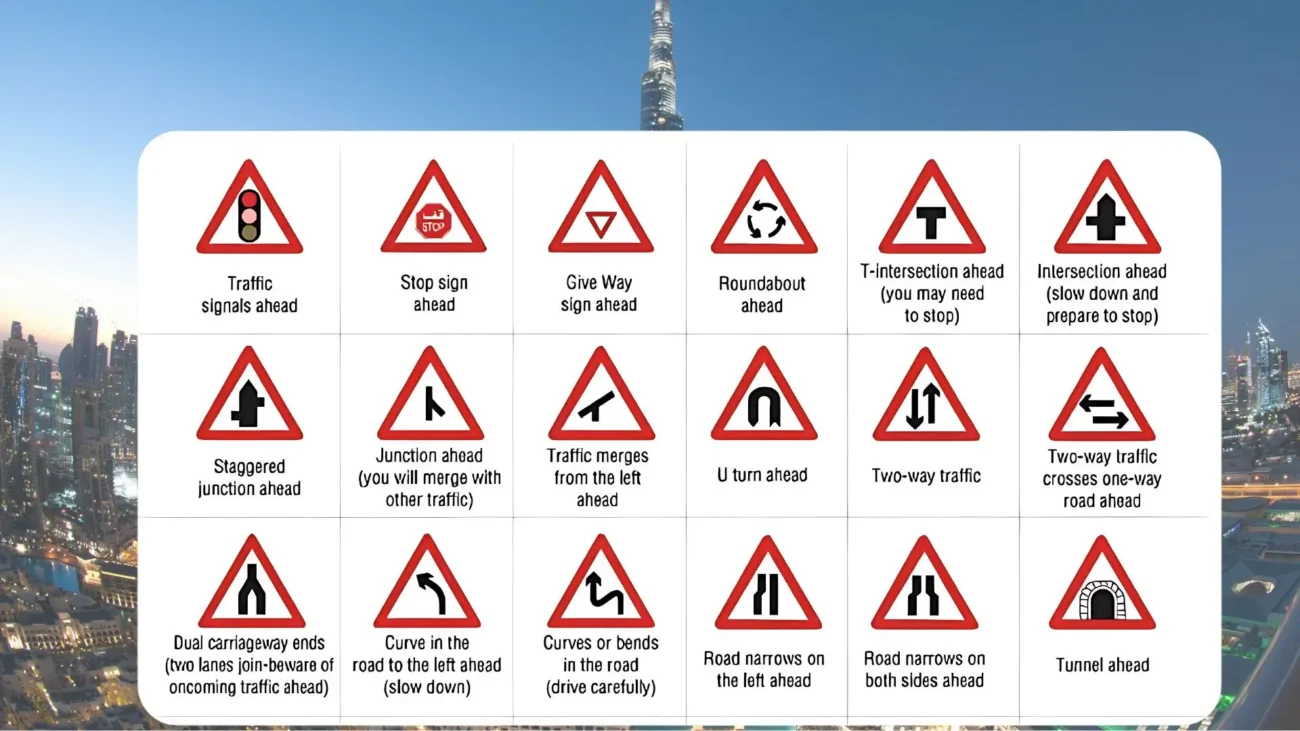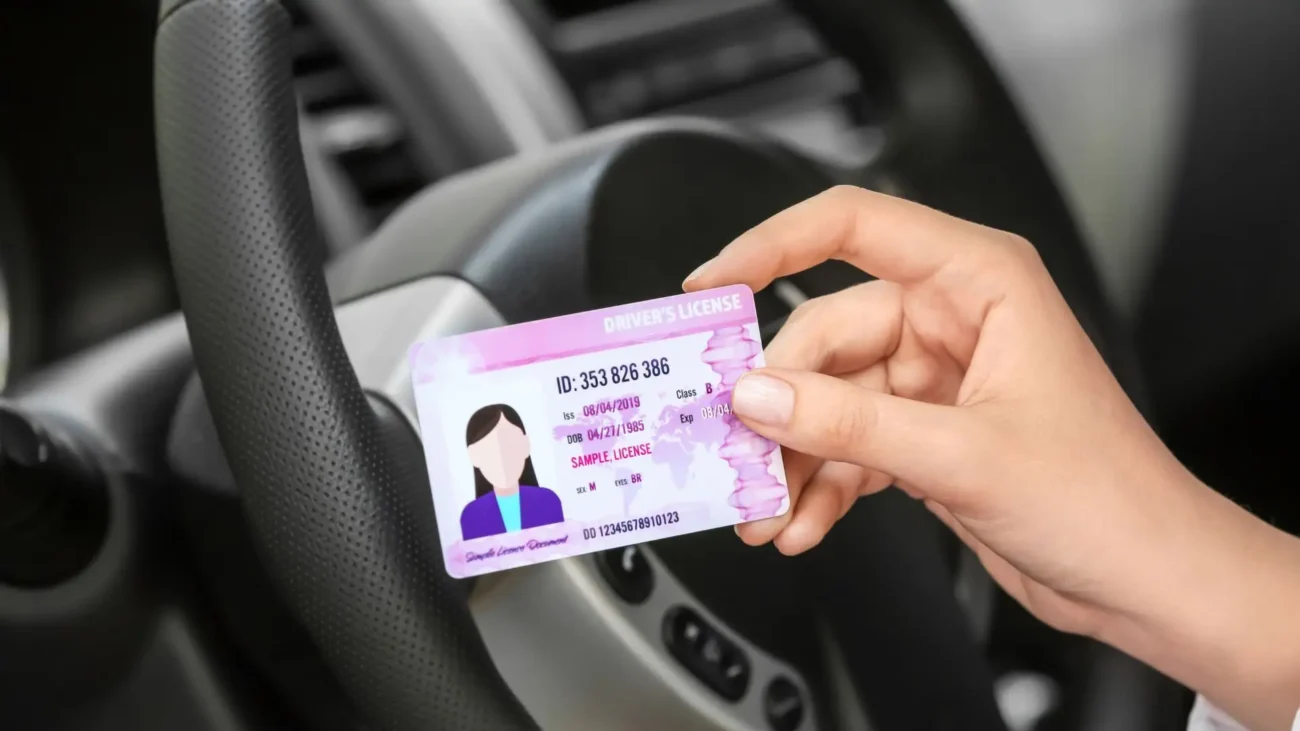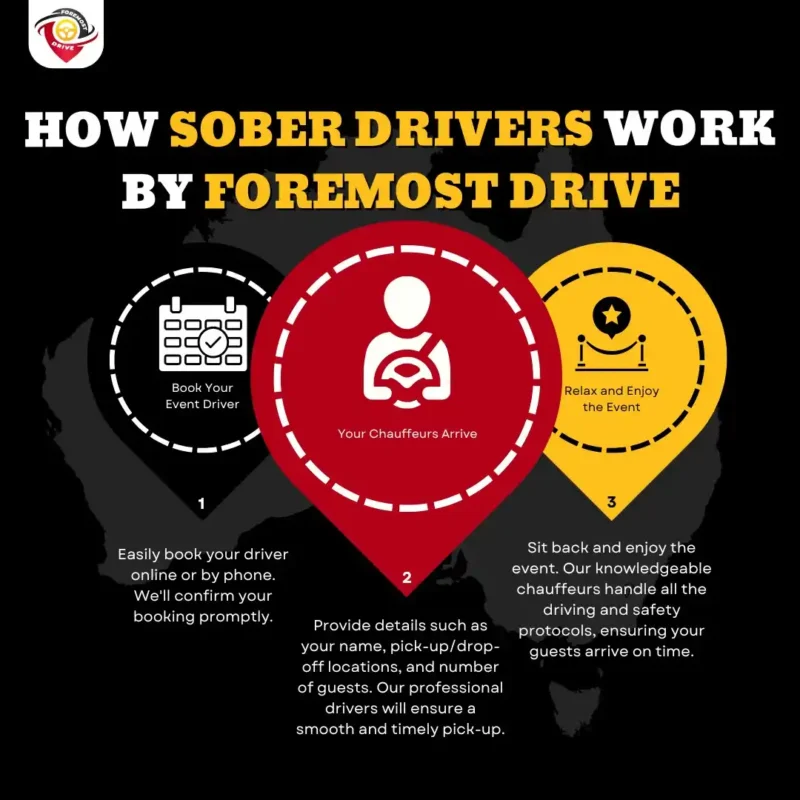Driving in the United Arab Emirates (UAE) offers a seamless blend of modernity and efficiency, thanks to world-class infrastructure and strict traffic regulations. While the country’s roads rank among the safest globally, understanding local laws, driving culture, and environmental factors is essential for a smooth experience.

This guide covers UAE’s road conditions, traffic regulations, defensive driving techniques, and safe transportation alternatives. Key takeaways include the UAE’s ranking as the fifth-best globally in road quality, updated traffic penalties for 2024–2025, and defensive driving strategies to help motorists stay safe.
Key Takeaways:
- Familiarize yourself with 2024–2025 traffic regulations.
- Maintain a safe following distance to prevent collisions.
- Adjust driving habits during sandstorms and heavy rain.
- Consider chauffeur services for convenience and safety.
Table of Contents
Road Infrastructure and Safety in the UAE
World-Class Roads and Connectivity
The UAE’s road network is a cornerstone of its transportation system, consistently earning international recognition. According to the World Economic Forum’s Travel and Tourism Development Index 2024, the UAE ranks fifth globally in road quality and first among Arab nations.
This achievement reflects decades of strategic investment in infrastructure, including multi-lane highways, intelligent traffic management systems, and regular maintenance protocols. Major arteries like Sheikh Zayed Road (E11) and Sheikh Mohammed bin Zayed Road (E311) exemplify this excellence, connecting all seven emirates with efficiency and safety.
Key Highways and Their Safety Features
The government’s investment in multi-lane highways, intelligent traffic systems, and routine maintenance ensures smooth travel across all seven emirates. Some of the key highways include:
- E11 (Sheikh Zayed Road): Stretching 558 km, this highway serves as the UAE’s backbone, linking Abu Dhabi, Dubai, Sharjah, and Ras Al Khaimah. Its design prioritizes high-speed travel (100–120 km/h) while incorporating advanced signage, lighting, and emergency response systems to ensure safe travel.
- E311 (Emirates Road): Extended in 2016 to reduce congestion on E11, this route provides toll-free access to suburban areas like Dubai’s Arabian Ranches and Sharjah’s Mirdif, featuring dedicated truck lanes to separate heavy vehicles from passenger traffic.
Urban roads also prioritize safety, with features like smart traffic lights, pedestrian bridges, and overpasses to manage foot traffic.
UAE Traffic Laws: 2024–2025 Updates

Recent amendments to UAE traffic laws aim to address emerging challenges, including distracted driving and urbanization pressures. Key changes include:
Speeding Violations:
- Exceeding speed limits by 80 km/h or more results in a AED 3,000 fine, 23 black points, and a 60-day vehicle impoundment.
Driving Under the Influence (DUI):
- Penalties include up to 3 months of imprisonment, fines up to AED 20,000, and a 1-year license suspension.
Red Light Violations:
- Jumping signals results in AED 1,000 fines, 12 black points, and 30-day impoundments.
Pedestrian Safety Measures:
- New regulations ban road crossings on highways with speed limits over 80 km/h, directing pedestrians to designated bridges and tunnels to reduce accidents.
Defensive Driving Strategies for UAE Roads
Studies show that 95% of road accidents result from human error. Adopting defensive driving techniques can significantly reduce risks.
Safe Following Distance
- Rear-end collisions account for 40% of UAE accidents. Maintain a 2-second gap in normal conditions and extend it to 4 seconds in rain or sandstorms.
Anticipating Aggressive Drivers
- Avoid frequent lane changes—Adhere to the “keep right unless overtaking” rule and use mirrors to monitor blind spots.
- Use Indicators Early: Signal intentions 100 meters before turns or lane changes to alert other drivers.
Driving in Sandstorms & Rain
- Avoid Frequent Lane Changes: Adhere to the “keep right unless overtaking” rule and use mirrors to monitor blind spots.
- Use Indicators Early: Signal intentions 100 meters before turns or lane changes to alert other drivers.
Legal Requirements for Drivers

1- Residents: Must obtain a UAE driver’s license, either through a driving test or reciprocal agreements for eligible nationalities.
2- Tourists: Need an international driving permit along with their home country’s license.
3- Mandatory Insurance:
- Third-party liability insurance is compulsory, covering damages up to AED 5 million.
- Comprehensive policies are recommended for full protection against theft and accidents.
Chauffeur Services: A Safe Alternative

For those uncomfortable navigating UAE roads, companies like Foremost Drive provide a professionally trained safe driver who is familiar with local traffic patterns. Testimonials highlight punctuality, vehicle maintenance standards, and adherence to speed limits, providing a stress-free alternative for business and leisure travel.
FAQs
What are the speed limits on UAE highways?
Speed limits on UAE highways typically range from 100 to 120 km/h. However, urban areas may have lower limits, often around 60 km/h.
Is it mandatory to wear a seatbelt in the UAE?
Yes, wearing a seatbelt is compulsory for all passengers in the UAE. Failure to comply can result in fines and penalties.
Can tourists drive in the UAE with their home country’s license?
Tourists need an international driving permit in addition to their home country’s license to drive legally in the UAE.
What are the penalties for using a mobile phone while driving?
Using a mobile phone while driving is strictly prohibited and can result in fines and penalties, including black points on your license.
How can I ensure my vehicle is safe for UAE roads?
Regularly check your vehicle’s tires, brakes, and lights. Ensure all necessary documents, such as insurance and registration, are up to date.
Is driving safe in Dubai?
Dubai has a well-maintained road network and strict traffic laws, making it generally safe to drive. However, challenges include high traffic congestion and aggressive driving behaviors. In 2024, Dubai recorded the highest number of road fatalities in the UAE, with 158 deaths, highlighting the need for cautious driving and adherence to traffic rules. Despite these challenges, Dubai continues to implement advanced safety measures and awareness campaigns to improve road safety.
What are the most common causes of accidents in Dubai?
The most common causes of accidents in Dubai include distracted driving, sudden deviation, tailgating, negligence and inattention, and poor lane discipline. These factors contribute significantly to fatalities and injuries on Dubai’s roads.
What is the minimum age to drive or rent a car in Dubai?
You must be at least 18 years old to drive in the UAE. However, you need to be at least 21 years old to rent a vehicle.
Is it legal to drink and drive in Dubai?
No, it is illegal to drink and drive in Dubai, regardless of how little alcohol you have consumed. This can lead to severe penalties, including imprisonment.
Can women drive in Dubai?
Yes, women can drive in Dubai. Since 2018, there have been no gender-based restrictions on driving in the UAE, including Dubai. Women can obtain a UAE driver’s license and drive freely in the city.
Conclusion
Driving in the UAE is statistically safe due to exemplary infrastructure and robust regulations. However, safety ultimately depends on individual compliance with speed limits, avoidance of distractions like mobile phones, and adoption of defensive driving techniques.
Visitors and new residents should prioritize familiarizing themselves with 2025’s updated penalties and consider chauffeur services for complex routes. By combining legal knowledge with proactive driving habits, motorists can fully enjoy the UAE’s roadways while minimizing risks.

